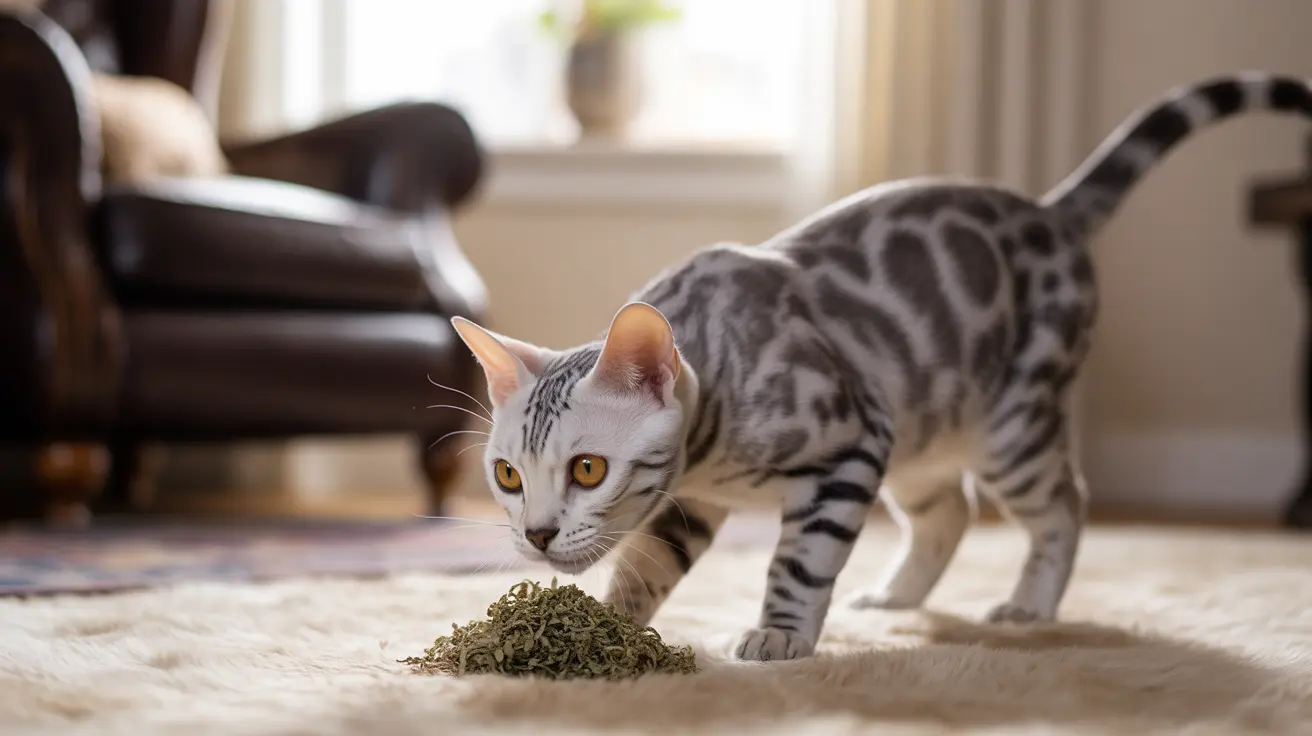Understanding Catnip and Its Effects
Catnip, a member of the mint family, is a popular herb known for its unique effects on felines. The active compound nepetalactone creates various reactions in cats, from excitement to relaxation. While generally safe, some cats may experience digestive issues, including diarrhea, when consuming this herb.
Understanding how catnip affects your cat's digestive system is crucial for responsible use of this common feline treat. Let's explore the potential risks and safe usage guidelines to ensure your cat can enjoy catnip without uncomfortable side effects.
The Link Between Catnip and Digestive Issues
When cats consume catnip rather than just sniffing it, they're more likely to experience digestive disturbances. While most cats naturally limit their intake, excessive consumption can lead to gastrointestinal upset, including diarrhea and vomiting.
The risk of digestive issues typically increases when cats:
- Eat large quantities of dried catnip
- Have sensitive stomachs or existing digestive conditions
- Are exposed to catnip for the first time
- Consume low-quality or contaminated catnip products
Safe Consumption Guidelines
To minimize the risk of digestive issues, follow these expert-recommended guidelines:
Proper Dosage
- Start with small amounts (1/4 teaspoon of dried catnip)
- Limit exposure to once or twice a week
- Monitor your cat's reaction for the first 15 minutes
Quality Control
- Purchase catnip from reputable sources
- Store in an airtight container
- Check for freshness and signs of contamination
- Consider using catnip toys instead of loose herb
Signs of Catnip Sensitivity
Watch for these indicators that your cat may be sensitive to catnip:
- Immediate diarrhea after consumption
- Vomiting or retching
- Excessive drooling
- Unusual lethargy
- Loss of appetite
- Behavioral changes
When to Contact Your Veterinarian
While most catnip-related digestive issues resolve on their own, certain situations warrant veterinary attention:
- Diarrhea persisting more than 24 hours
- Signs of dehydration
- Lethargy or weakness
- Blood in stool
- Continued vomiting
- Significant behavioral changes
Prevention and Alternative Options
If your cat is sensitive to catnip, consider these alternatives:
- Silver vine (a similar herb with fewer side effects)
- Interactive toys without catnip
- Cat grass (wheat or oat grass)
- Honeysuckle toys (appeals to some cats)
Frequently Asked Questions
Can catnip cause diarrhea in cats, and how much is too much?
Yes, catnip can cause diarrhea if cats consume excessive amounts. Generally, more than 1/2 teaspoon of dried catnip at once is considered too much for most cats.
What are the common digestive side effects if my cat eats too much catnip?
Common side effects include diarrhea, vomiting, mild nausea, and decreased appetite. These symptoms typically resolve within 24 hours.
Why do some cats not react to catnip at all?
Approximately 30% of cats lack the genetic sensitivity to catnip. This hereditary trait means they won't experience any effects – positive or negative – from catnip exposure.
How should I safely introduce catnip to my cat to avoid stomach upset?
Start with a tiny amount (pinch) of fresh or dried catnip, allowing your cat to smell it first. Monitor their reaction for 15 minutes before considering consumption.
When should I take my cat to the vet after giving them catnip?
Seek veterinary care if diarrhea persists beyond 24 hours, if your cat shows signs of dehydration, or if they experience severe lethargy or significant behavioral changes.
Conclusion
While catnip can cause diarrhea and other digestive issues in some cats, these effects are typically mild and temporary when the herb is used responsibly. By following proper dosage guidelines, monitoring your cat's reaction, and choosing quality products, you can minimize the risk of digestive upset while allowing your cat to enjoy the benefits of this popular herb.






